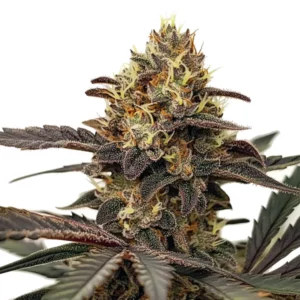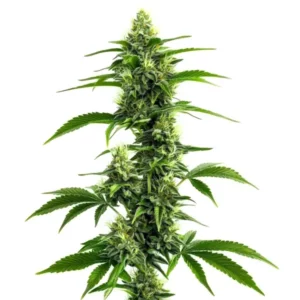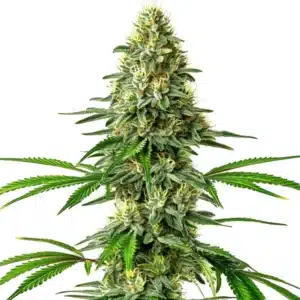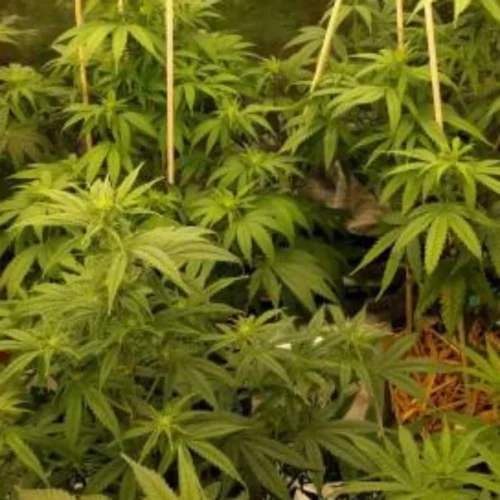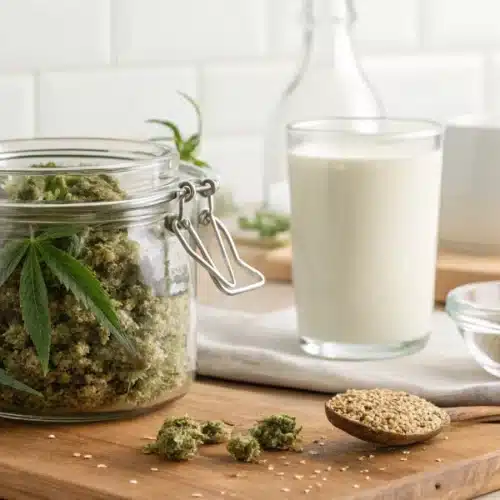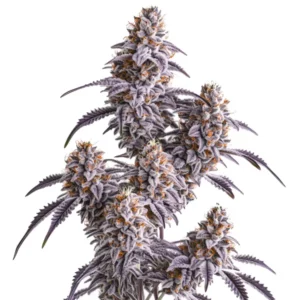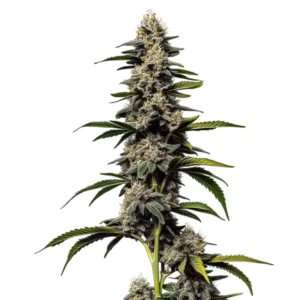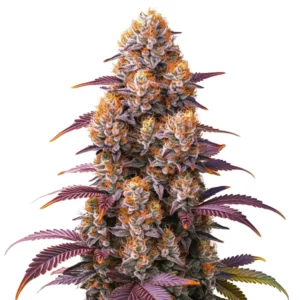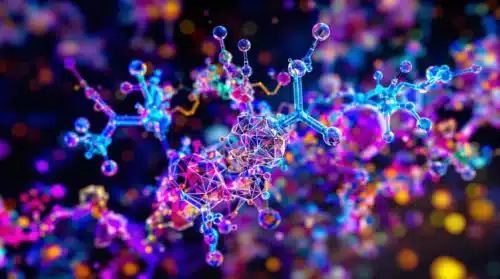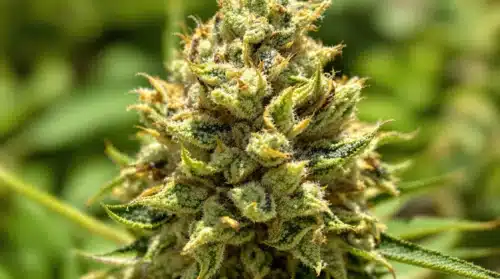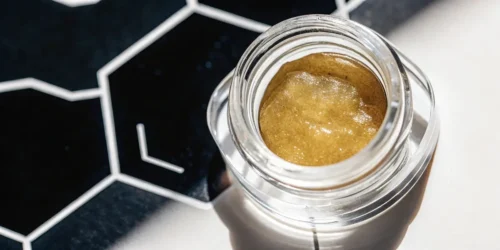Cannabis continues to captivate researchers and consumers with its wide array of cannabinoids, each offering unique properties and potential benefits. Among these, THCP vs THCA are gaining attention for their distinct chemical structures, interactions with the body, and applications in wellness. While they may share some similarities, their differences in psychoactivity, therapeutic potential, and availability in cannabis underscore the importance of understanding each compound in detail.
Both cannabinoids have unique roles in the cannabis plant and its potential applications in wellness. This article delves into their characteristics, benefits, and how they compare, helping consumers make informed decisions based on their needs and preferences.
What Is THCP?
THCP is a recently discovered cannabinoid found in small amounts in certain cannabis strains. When comparing thcp vs thca, it’s important to note that THCA (tetrahydrocannabinolic acid) is the non-psychoactive precursor that only converts to THC when heated, whereas THCP already exhibits psychoactive properties. Structurally similar to THC, THCP’s unique molecular configuration gives it a much stronger binding affinity to CB1 receptors in the endocannabinoid system. This enhanced interaction suggests that THCP could be significantly more potent than THC, potentially amplifying its effects.
THCP’s discovery has generated significant interest in the scientific community due to its unparalleled potency. Early studies indicate that it may have profound implications for therapeutic applications, especially for individuals with higher tolerances to traditional cannabinoids like THC. However, its effects on the human body are not yet fully understood, making further research essential.
- Chemical Composition: THCP features a longer alkyl side chain than THC, with seven carbon atoms instead of five. This allows for a more efficient receptor binding process.
- Potency: Preliminary studies indicate that THCP is approximately 33 times more active than THC at CB1 receptors, possibly leading to more intense psychoactive effects.
Promos & Deals
What Is THCA?
When comparing thcp vs thca, it’s important to understand that THCA is the acidic precursor to THC, naturally found in raw cannabis. Unlike THC, THCA is non-psychoactive in its raw form. When exposed to heat, it undergoes decarboxylation, converting into THC and unlocking its psychoactive properties.
THCA is often associated with raw cannabis consumption and is increasingly recognized for its therapeutic potential. Many health-conscious users incorporate THCA into their wellness routines to leverage its benefits without experiencing the “high” typically associated with THC. Its availability in raw cannabis products has made it a staple for consumers looking for non-intoxicating options.
- Chemical Characteristics: THCA retains its acidic group until decarboxylation occurs, making it chemically distinct from both THC and THCP.
- Consumption Forms: Commonly consumed in raw cannabis juice, capsules, or tinctures, THCA is valued for its non-intoxicating effects and therapeutic properties.
THCP vs THCA: Key Differences

Psychoactivity
- THCP: Highly psychoactive due to its strong binding with CB1 receptors, making it comparable to or stronger than THC. For those seeking intense effects, THCP may be an intriguing option, though caution is advised to avoid overconsumption.
- THCA: Non-psychoactive in its raw form but becomes psychoactive upon heating and conversion to THC. This makes it versatile, as users can choose whether to activate its intoxicating properties depending on their needs.
Therapeutic Potential
- THCP: Research is still in its early stages, but it shows promise for pain management and mood regulation due to its enhanced potency. This cannabinoid might hold significant potential for individuals dealing with severe symptoms that standard THC cannot address.
- THCA: Known for anti-inflammatory, neuroprotective, and antiemetic properties without intoxicating effects, making it suitable for daytime use. Its ability to support overall wellness without psychoactivity makes it ideal for a broader range of consumers.
Availability in Cannabis
- THCP: Present in trace amounts, requiring advanced extraction and isolation techniques. Its rarity makes it a more exclusive and premium cannabinoid.
- THCA: Found abundantly in raw cannabis, easily accessible to consumers. This abundance ensures that it remains an economical and practical choice for many users.
Potential Benefits of THCP
Although research is limited, early findings suggest THCP may provide various therapeutic benefits:
- Pain Relief: Its potent interaction with CB1 receptors could make it effective for chronic pain management. Those dealing with severe or persistent pain may find relief with this highly active cannabinoid.
- Improved Sleep: THCP may promote deep relaxation and better sleep patterns. Its sedative effects, often stronger than THC, could benefit individuals with sleep disorders.
- Enhanced Appetite Stimulation: Like THC, it may help increase appetite, but with potentially greater efficacy. This property could be particularly useful for patients undergoing treatments like chemotherapy, where appetite stimulation is essential.
As THCP continues to be studied, its therapeutic profile is expected to expand. However, its high potency necessitates careful dosing to avoid unwanted side effects.
Potential Benefits of THCA
THCA has been studied for its wellness applications without causing intoxication:
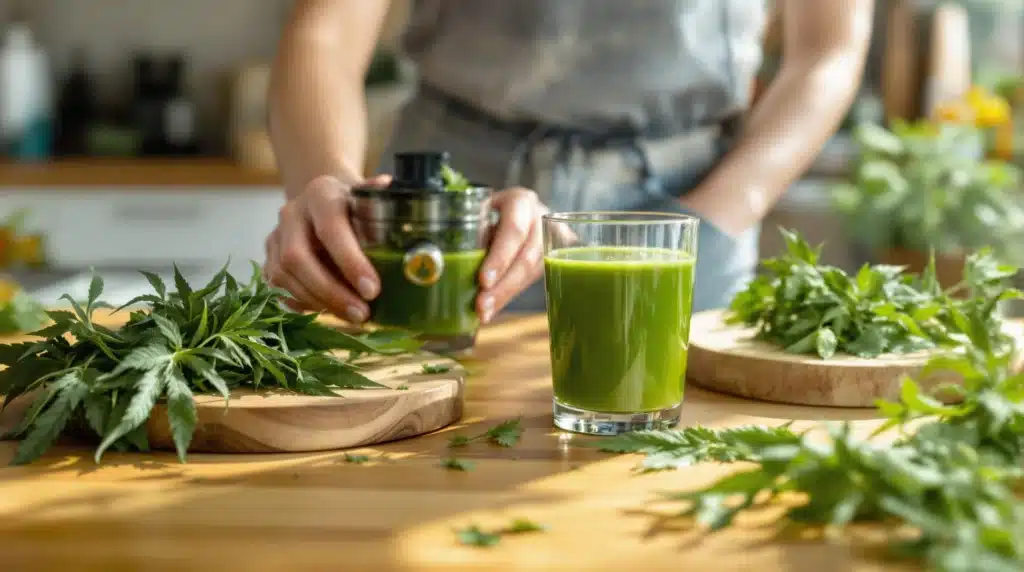
- Anti-Inflammatory Properties: Useful for conditions like arthritis or autoimmune disorders. Many users incorporate THCA into their routines to manage chronic inflammation naturally.
- Neuroprotective Effects: Potential to support brain health and delay the progression of neurodegenerative diseases. These properties could make it an essential cannabinoid for aging populations.
- Nausea and Appetite Control: Beneficial for individuals undergoing chemotherapy or dealing with appetite loss. Its non-intoxicating nature ensures that users can consume it freely without impairing daily activities.
By focusing on its therapeutic potential, THCA has established itself as a valuable addition to the cannabis wellness space.
Comparing Consumption Methods
THCP
- Vaporization and Smoking: Typically consumed in distillates or concentrates for its enhanced effects. These methods allow users to experience the full potency of THCP almost immediately.
- Edibles: Infused products may offer prolonged and potent effects. However, due to its potency, starting with low doses is crucial.
- Tinctures: A measured way to explore THCP’s potential. These products provide precise dosing and are ideal for those new to the cannabinoid.
THCA
- Raw Juicing: Retains the cannabinoid’s natural form, ideal for health-focused consumers. This method preserves all of THCA’s benefits without any psychoactive effects.
- Capsules and Tinctures: Convenient, controlled doses for daily supplementation. These forms are especially popular for individuals incorporating THCA into their wellness routines.
- Topicals: Applied directly to the skin for localized anti-inflammatory relief. This method is perfect for targeting specific areas of pain or inflammation without systemic effects.
Safety and Legal Considerations
Cannabinoids like THCP vs THCA occupy a complex legal and safety landscape:
- THCP: Due to its potency, cautious dosing is essential to avoid overconsumption and adverse effects. Research into its safety profile is ongoing, but early users should exercise moderation.
- THCA: Generally considered safe and non-intoxicating but may still fall under regulatory scrutiny depending on THC levels in decarboxylated forms. Consumers should ensure that products meet local legal standards.
Choosing Between THCP and THCA
When comparing thcp vs thca, the choice depends on individual goals and tolerance:
- THCP: Best suited for those seeking potent effects and are experienced with cannabinoids. This cannabinoid may provide a more intense experience than standard THC, making it ideal for seasoned users.
- THCA: Ideal for users focused on health benefits without psychoactivity. Its versatility and abundance make it a practical choice for wellness-oriented consumers.
FAQs about thcp vs thca
What Makes THCP So Potent?
THCP’s longer alkyl side chain enhances its ability to bind with CB1 receptors, amplifying its psychoactive properties. This stronger binding affinity increases its activity in the body, making it significantly more potent than THC. As a result, even small doses can lead to intense effects, requiring users to approach it cautiously.
Can THCA Get You High?
In its raw form, THCA is non-psychoactive. Heating converts it into THC, which has intoxicating effects. This process, known as decarboxylation, involves exposing THCA to heat through methods like smoking, vaping, or baking. Once converted, the compound interacts with CB1 receptors in the brain, producing the characteristic “high” of THC.
Is THCP Safe?
As with all cannabinoids, moderation and consultation with a healthcare provider are recommended due to its high potency. While early research suggests therapeutic potential, its effects on different individuals can vary widely. Beginners should start with minimal doses to gauge their tolerance and avoid adverse effects.
How Do I Consume THCA Without Psychoactive Effects?
Raw cannabis products, such as juices or capsules, preserve THCP or THCA in their non-intoxicating form. To maintain THCA’s benefits, avoid exposing it to heat, which would convert it into THC. This allows users to enjoy the therapeutic properties of THCP or THCA without experiencing the psychoactive effects associated with THC.

